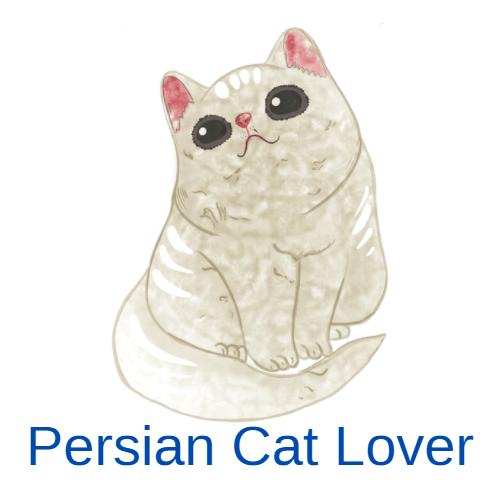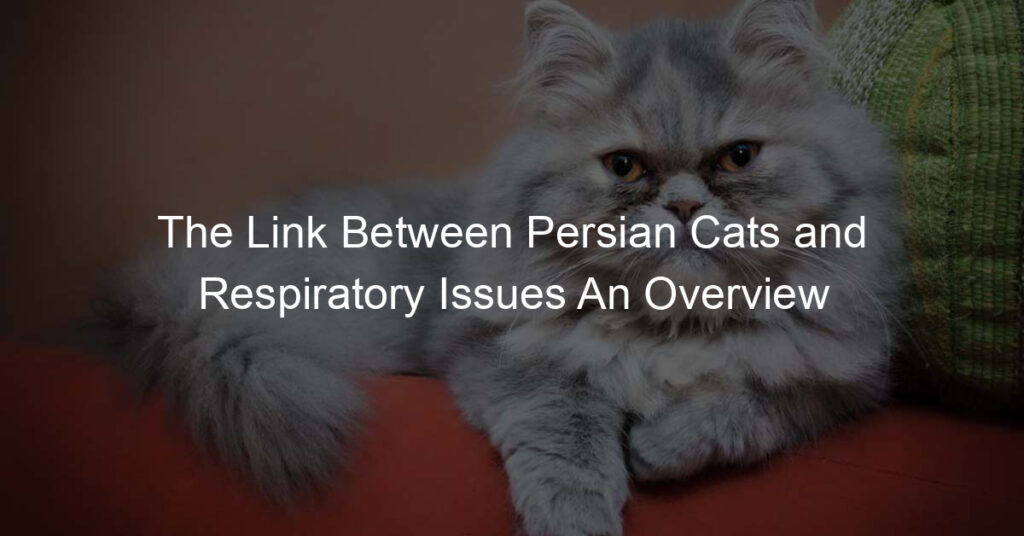You might be interested in owning a Persian cat if you love cats. But before taking the big step, you want to know the average Persian cat lifespan. It’s very essential to know for how long you are going to enjoy the company of your new furry friend. So, in this post, we will talk about the average lifespan of a Persian cat so that you can make an informed decision.
The Average Lifespan of a Persian Cat
Persian cats are a popular house cat breed characterized by their long fur and fluffy tails. While they may look like delicate creatures, Persian cats can have a long lifespan. The average Persian cat’s life expectancy is between 12 and 18 years, although some Persian cats live into their 20s. This means that they can provide you with many years of companionship.
What Factors Affect the Persian Cat Lifespan?

Of course, the actual lifespan of a Persian cat will depend on several factors. These include:
Diet
While they make great companions, Persian cats require special care to stay healthy and happy. A critical factor in keeping a Persian cat healthy is diet. Persian cats are prone to weight gain, leading to health problems such as joint pain and respiratory difficulties. Therefore, feeding them a diet high in protein and low in fat is essential.
In addition, Persian cats are also susceptible to kidney disease, so it is essential to ensure they are getting enough water. Following these simple guidelines can help ensure that your Persian cat enjoys a long and healthy life.
Exercise
While Persian cats don’t require as much exercise as some other cat breeds, they still need some physical activity to stay healthy. A simple way to provide your Persian cat with practice is to create a scratching post or cat tree for them to climb. You can also try playing with your Persian cat indoors. There are several games they love, such as chasing a toy around the house and more. Additionally, you can take them for a walk. By moving your outdoor Persian cat, you can help them maintain a healthy weight and avoid health problems associated with obesity.
Genetics
As with any living creature, genetics play a role in determining lifespan. In general, purebred animals tend to have shorter lifespans than mixed-breed animals. This is because purebreds are often bred for specific physical traits, which can lead to health problems. For example, Persian cats are prone to genetic disorders such as polycystic kidney disease and hip dysplasia. However, mixed-breed Persian cats are less likely to develop these conditions.
Overall Care
Of course, the best way to ensure a long lifespan for your Persian cat is to take good care of them. This includes regular vet check-ups, vaccinations, and a healthy diet. By providing your Persian cat with the best possible care, you can help them enjoy a long and happy life.
How to Keep Your Persian Cat Healthy

If you want your furry friend to live longer, you need to care for them. In this case, you’re required.
- Give them a balanced diet.
As we mentioned before, Persian cats are prone to weight gain. Therefore, feeding them a diet high in protein and low in fat is essential. You should also ensure they get enough water to avoid kidney problems.
- Could you provide them with exercise?
While Persian cats don’t require as much exercise as some other breeds, they still need some physical activity to stay healthy. A simple way to provide your Persian cat with training is to create a scratching post or cat tree for them to climb. You can also try playing games with them, such as chasing a toy around the house.
- Take them to the vet regularly.
Taking your Persian cat to the vet for regular check-ups and vaccinations is essential. Doing so can catch any health problems early and get treatment for them before they become serious. This is more so for dental disease.
- Brush their fur regularly.
Because of their long fur, Persian cats require more grooming than other breeds. Ensure to brush their hair daily to avoid mats and tangles. It would help if you also trimmed their nails every few weeks to keep them from getting too long.
- Give them plenty of love and attention.
Persian cats thrive on love and attention, like all cats. So, Persian cat owners should spend time playing with them, and cuddling them daily would help them. This will help them stay happy and healthy for many years to come.
Health Concerns for Persian Cats
While Persian cats are generally healthy but prone to specific health problems. These include
- weight gain
- Joint pain
- Respiratory difficulties
- Kidney disease,
- Certain genetic disorders.
However, you can help your Persian cat avoid these problems by following the care tips we have provided above. This way, you get to extend your Persian cat’s lifespan.
How Often Should You Take Your Persian Cat for Check-up?

It would help if you took your Persian cat to the vet for a check-up at least once a year. However, if they show any signs of illness, you should take them to the vet as soon as possible. Remember,
Your Persian cat should be vaccinated against common diseases such as rabies and feline leukemia.
These vaccinations will help protect them from serious health problems. Moreover, spaying or neutering your Persian cat at around six months is generally recommended. This will help reduce their risk of developing specific health problems later in life.
FAQs
Are Persian cats expensive to care for?
No, Persian cats are not expensive to care for. They have the exact basic needs of any other cat breed. This includes a balanced diet, regular vet check-ups, and vaccinations.
Do Persian cats need a lot of grooming?
Yes, it would be best if you groomed your Persian cats regularly. This is because they have long fur that can become matted and tangled easily. Therefore, brushing their fur daily and trimming their nails every few weeks is essential.
Final Thoughts
If you are thinking of getting a Persian cat, you now know how long these amazing creatures can live. But you also know what to do to keep them healthy and happy. So, remember to follow our care tips, and your Persian cat will enjoy a long and prosperous life.














